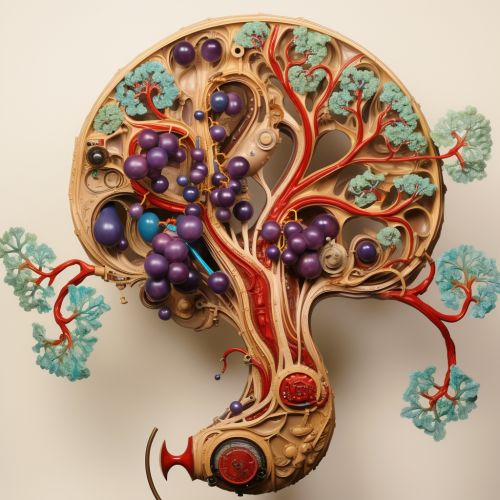Renal Function
Introduction
Renal function refers to the state of the kidneys and how well they filter blood, remove waste products, and balance electrolytes in the body. This function is crucial for maintaining homeostasis and overall health.


Anatomy of the Kidney
The kidney is a bean-shaped organ located in the retroperitoneal space of the abdominal cavity. Each kidney is composed of approximately one million functional units known as nephrons. Each nephron consists of a renal corpuscle and a renal tubule. The renal corpuscle is made up of a glomerulus and Bowman's capsule, while the renal tubule is divided into the proximal convoluted tubule, loop of Henle, and distal convoluted tubule.
Functions of the Kidney
The primary functions of the kidney include:
- Filtration: The kidneys filter approximately 180 liters of blood daily to produce urine. This process removes waste products such as urea, creatinine, and excess electrolytes from the blood.
- Reabsorption: Essential substances like glucose, amino acids, and electrolytes are reabsorbed back into the bloodstream during the passage of filtrate through the renal tubules.
- Secretion: The kidneys secrete substances such as hydrogen ions and potassium ions into the urine to maintain acid-base balance and electrolyte balance in the body.
- Endocrine function: The kidneys produce hormones such as erythropoietin, which stimulates red blood cell production, and renin, which regulates blood pressure.
Assessment of Renal Function
The assessment of renal function involves various tests and measurements. The most common tests include:
- Serum Creatinine: This test measures the level of creatinine in the blood, which is a waste product produced by muscle metabolism. An elevated serum creatinine level indicates impaired renal function.
- Glomerular Filtration Rate (GFR): This is the best overall measure of kidney function. It estimates the amount of blood that passes through the glomeruli each minute.
- Urine Tests: These tests measure the presence of proteins, blood, and other substances in the urine, which can indicate kidney disease.
Diseases Affecting Renal Function
Various diseases can affect renal function, including:
- Chronic Kidney Disease (CKD): This is a long-term condition where the kidneys do not work effectively over time.
- Acute Kidney Injury (AKI): This is a sudden episode of kidney failure or kidney damage that happens within a few hours or a few days.
- Glomerulonephritis: This is a type of kidney disease that involves inflammation of the glomeruli.
- Polycystic Kidney Disease (PKD): This is a genetic disorder characterized by the growth of numerous cysts in the kidneys.
Conclusion
Renal function is a critical aspect of overall health, and understanding its intricacies can lead to better management and prevention of kidney-related diseases. Regular check-ups and healthy lifestyle choices can help maintain optimal renal function and prevent kidney disease.
